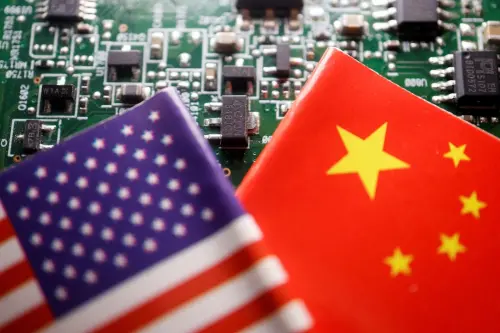The U.S. Trade Representative's Office is scheduled to conduct a hearing on Tuesday regarding older Chinese-made "legacy" semiconductors. This investigation could potentially result in additional U.S. tariffs on Chinese chips that are utilized in a wide range of products, such as automobiles, washing machines, and telecommunications equipment.
Initiated by then-President Joe Biden in December, the inquiry aims to safeguard American and other semiconductor manufacturers from China's extensive state-driven efforts to enhance its domestic chip supply. Commencing on January 1, a 50% U.S. tariff was imposed on Chinese semiconductors.
Legacy chips are manufactured using older processes that were introduced over a decade ago and are typically less complex than chips utilized in AI applications or advanced microprocessors.
According to the Commerce Department, as of December, two-thirds of U.S. products incorporating chips contained Chinese legacy chips, with half of U.S. companies unaware of the chips' origin, including some within the defense sector.
The hearing coincides with President Donald Trump's call to bolster U.S. chip manufacturing, with awards given to industry giants like Intel, Samsung Electronics, Micron, and TSMC.
The inquiry is being executed in accordance with Section 301 of the Trade Act of 1974, the same statute used by Trump to levy tariffs of up to 25% on approximately $370 billion worth of Chinese imports in 2018 and 2019, instigating a trade war with Beijing that lasted nearly three years.
The China Association of Automobile Manufactures notified USTR that it believes the Chinese auto chip industry does not engage in anti-competitive or non-market practices to achieve its goals.
Meanwhile, the Foundation for American Innovation intends to argue that China is taking advantage of the U.S. free-market system and trade policies to manipulate markets, undermine U.S. firms, and gain control over crucial supply chains, cautioning about the repercussions of failing to address China's subsidies and market distortions concerning silicon carbide wafers.
Conversely, the China Chamber of Commerce for Import and Export of Machinery and Electronic Products expressed concerns to USTR that new tariffs would result in heightened U.S. inflation rates and significant harm to households, consumers, importers, exporters, and domestic industry players.
